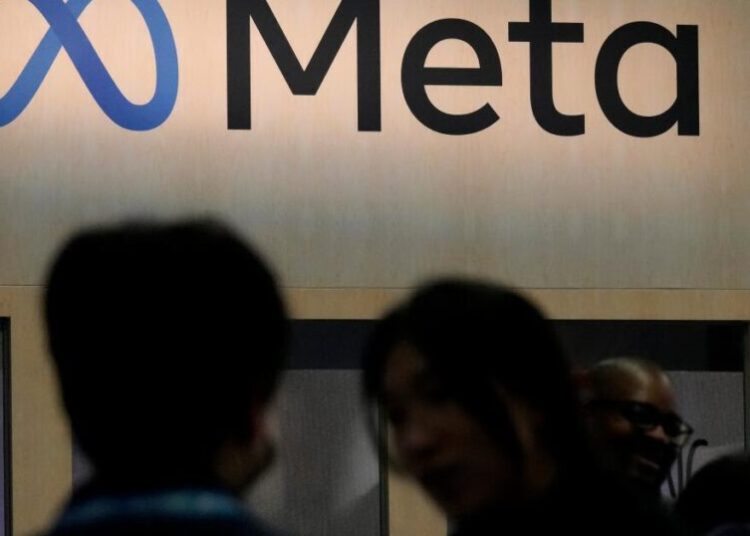Meta did not break the law when it bought its nascent rivals Instagram and WhatsApp, a federal judge said on Tuesday, handing a major win to the $1.51 trillion company and dealing a blow to the government’s efforts to rein in the power of tech giants.
Judge James E. Boasberg of the U.S. District Court of the District of Columbia said in an 89-page ruling that Meta did not create a monopoly in social networking through the acquisitions and that the market has continued to expand with rivals including TikTok and YouTube. The Federal Trade Commission had sued the company, accusing it of breaking antitrust law by acquiring Instagram and WhatsApp in a “buy or bury” strategy to cement its social networking dominance.
The F.T.C. “continues to insist that Meta competes with the same old rivals it has for the last decade, that the company holds a monopoly among that small set and that it maintained that monopoly through anticompetitive acquisitions,” Judge Boasberg said, adding that the agency needed to prove that argument. “The court’s verdict today determines that the F.T.C. has not done so.”
The decision is a reprieve for Meta, which has defined the social media landscape since Mark Zuckerberg co-founded Facebook in his Harvard dorm room in 2004. The F.T.C. had pre-emptively asked the judge to force Meta to divest itself of Instagram and WhatsApp. The win now clears the way for Meta to continue to pursue its business ambitions, including its expansion into artificial intelligence.
But the ruling is a setback for federal regulators, who have sought to curb tech companies’ power in the modern internet age through a series of antitrust lawsuits. The lawsuits began at the end of the first Trump administration and continued through the Biden administration, with President Trump not backing off the cases in his second term.
The federal government has scored significant victories during this time. The Department of Justice won two cases against Google over its monopolies in search and advertising technology, the second of which is awaiting a judge’s decision on remedies.
A lawsuit against Amazon, in which the government accused the company of squeezing the small merchants using its platform, is scheduled for trial in 2027. The government also sued Apple, accusing it of making it difficult for users to leave its ecosystem of devices.
“The court’s decision today recognizes that Meta faces fierce competition,” Jennifer Newstead, Meta’s chief legal officer, said in a statement. “Our products are beneficial for people and businesses and exemplify American innovation and economic growth.”
The F.T.C. said it was reviewing its options but described the judge as biased against the Trump administration.
“We are deeply disappointed in this decision,” said Joe Simonson, a spokesman for the F.T.C. “The deck was always stacked against us with Judge Boasberg.”
The case — Federal Trade Commission v. Meta Platforms — stemmed from a novel legal argument that Meta, which was known as Facebook at the time, bought Instagram in 2012 for $1 billion and WhatsApp in 2014 for $19 billion to kill off its competitors. The government’s lawsuit, filed nearly five years ago, argued that Meta violated Section 2 of the 135-year-old Sherman Antitrust Act, a federal law that prohibits the monopolization of an industry through anticompetitive practices.
The odds were against the government, legal experts said, because it had the difficulty of proving a hypothetical: that Meta would not have been so dominant if it hadn’t acquired the rival apps.
During a trial this year, Judge Boasberg heard six weeks of testimony from 38 witnesses, including Meta’s chief executive, Mr. Zuckerberg, who was grilled by government lawyers.
The F.T.C. argued that Meta monopolized a narrow market it called “personal social-networking,” for consumers to connect with friends and family online. Under that definition, the F.T.C. said Meta’s primary competition was the social media app Snapchat, owned by Snap.
A parade of executives, from LinkedIn, Reddit, Pinterest, YouTube and other companies, testified, offering opinions of whether they competed with Meta.
The testimonies provided conflicting definitions of social media and whether Instagram and WhatsApp would have thrived independently and created a different version of the internet for people to connect online.
The centerpiece of the government’s case was an arsenal of more than 400 internal documents in which Mr. Zuckerberg and other executives discussed their anxiety over competition from Instagram and WhatsApp. The F.T.C. said the documents provided proof the company was seeking to protect its monopoly, which resulted in less competition and fewer options for consumers.
Meta defended itself during the trial by saying that social media had changed drastically since Facebook’s early days, when it was a bulletin board for college students. The company said that it faced plenty of competition from online platforms, and that its greatest competition was in video entertainment, making TikTok and YouTube its top rivals.
Meta also argued that it helped Instagram and WhatsApp grow by plying them with resources.
On Tuesday, Mr. Boasberg sided with Meta, saying the company does compete with rival apps like YouTube and TikTok. He emphasized how quickly technology had changed even since the F.T.C. filed suit.
Facebook and Instagram have transformed to “primarily show users short unconnected videos recommended by algorithms,” Mr. Boasberg wrote in his opinion. “Both apps are pushing still further in that direction.”
The decision to define the social media market broadly could leave little room for the F.T.C. to appeal the decision, because higher courts will likely defer to Mr. Boasberg’s view, some legal experts said.
“It is a decisive win for Meta,” said Rebecca Haw Allensworth, professor of law at Vanderbilt University. “It takes the wind out of the sails of the government antitrust suits against Big Tech for sure.”
Filed in late 2020 during the first Trump administration, the government’s case has faced obstacles from the start. Judge Boasberg rejected the F.T.C.’s case and a similar antitrust suit against Meta brought by states the next year, saying the plaintiffs lacked sufficient evidence on market definitions and strong enough legal theories to move forward.
He allowed the F.T.C. to refile its case, which regulators did weeks later on behalf of the Biden administration.
The biggest companies in Silicon Valley have long grown through hundreds of mergers, making it difficult to prove that an acquisition was meant to harm competition. That pattern continues with A.I.
Before the trial began in April, Mr. Zuckerberg visited Mr. Trump in the White House to lobby for a settlement.
Cecilia Kang reports on technology and regulatory policy for The Times from Washington. She has written about technology for over two decades.
The post Meta Did Not Violate Antitrust Law, Judge Rules appeared first on New York Times.




